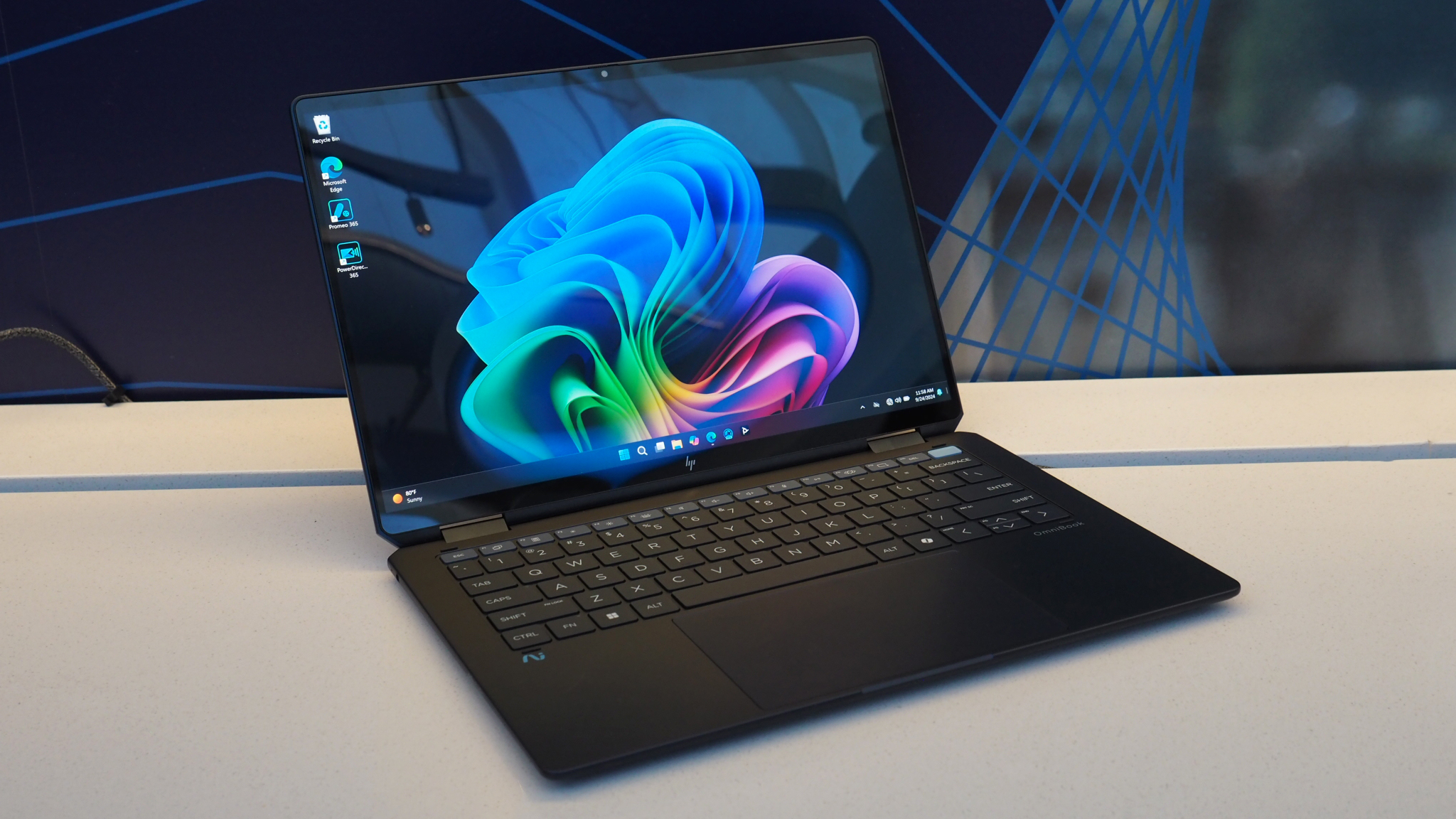
If there's one theme that's stood out in the world of tech this year, it's undoubtedly been that of artificial intelligence – or AI for short. I've been to numerous keynotes, product launches and company presentations where the 'AI acronym' has continued to echo around my head afterwards – but not always with the greatest of intent or application.
At HP Imagine 2024 – the computing giant's second of its annual tech conference, hosted at the company headquarters in Palo Alto – the AI trend was in full swing. The reveal of the brand's first-ever 2-in-1 AI laptop, the OmniBook Ultra Flip, immediately impressed me in terms of build quality and how it feels to use – but while that's years of expertise in motion, this whole AI game is new.
With many of the best laptops now deploying Qualcomm's Snapdragon X Elite or Intel's Core Ultra Series 2 chips inside – key purveyors in these new AI-forward processors – it's clear we're at the beginning of a new movement. So I sat down with HP execs to ask that biggest of questions: "how will AI truly make our lives better in the future?"
1. Better battery
A lot of companies have been throwing around some heavyweight acronyms when it comes to AI in computing. You'll hear 'NPU' a lot, believe me, which stands for 'neural processing unit'. 'TOPS' anyone? That's 'trillions of operations per second' – a numeric expression of a device's on-board AI power.
While I suspect most consumers aren't going to be actively interested in this acronym outburst, there is genuine value in what these relatively new values can offer. Samuel Chang, Senior Vice President and Division President of Consumer PC Solutions at HP, says the first thing is that AI PCs today can deliver better results in the basics, such as battery life.
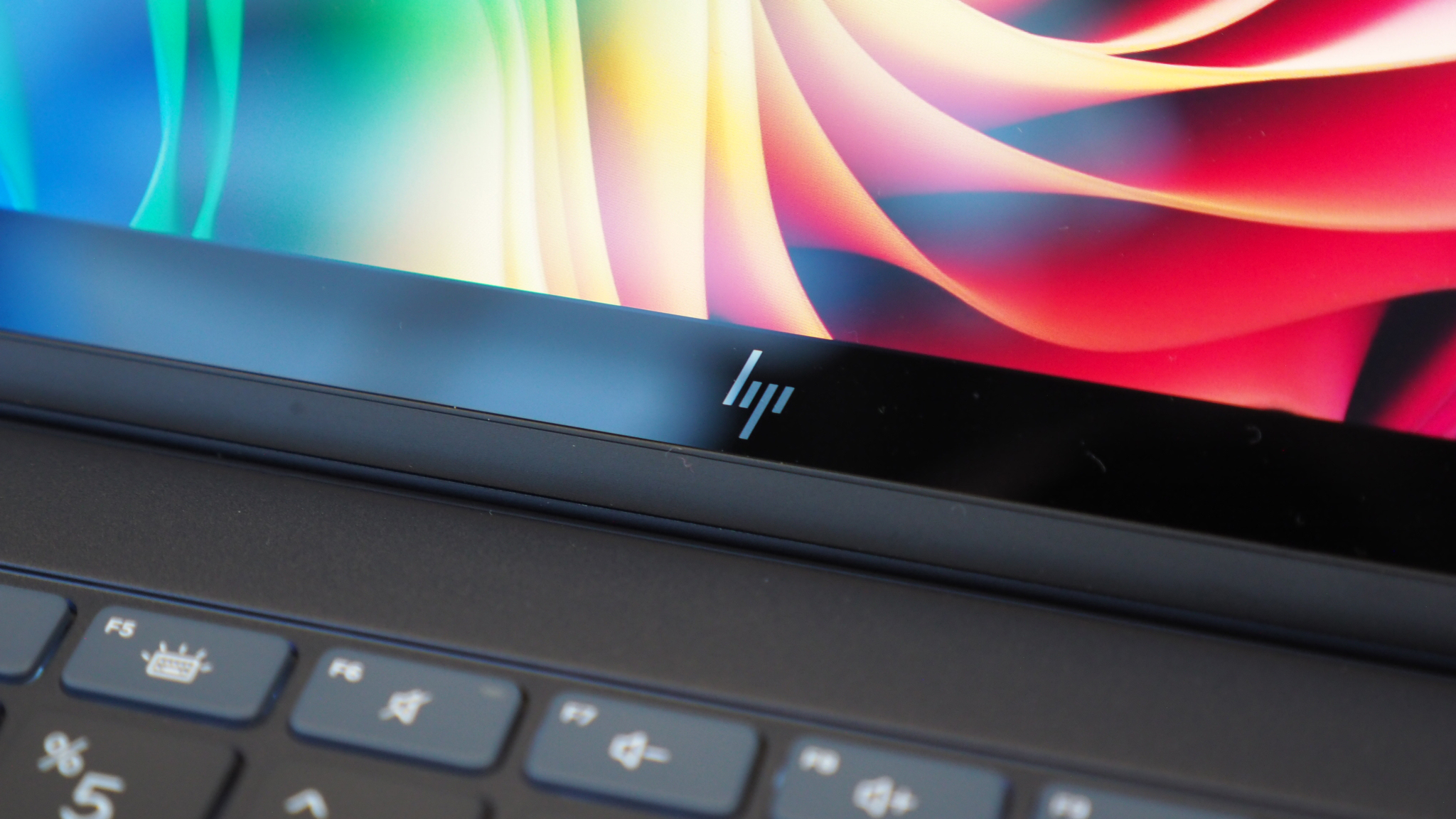
"A lot of people do video-conferencing, right? I spend probably four hours a day. So the ability to use AI and the NPU to offload that workload is going to deliver a better battery performance from a chip like Intel's Lunar Lake." That's because the processor doesn't have to do all the heavy-lifting all of the time, making the workload less intensive.
"Second, by leveraging some of the AI tools we [HP] offer, [it's possible] to take the data telemetry of not only what hardware features you have, or what applications you're running, but [the AI] fine-tunes and optimises the drivers and settings. So your software is always up-to-date and personalised to that device. That will make your device optimal for better performance".
Sign up to the T3 newsletter for smarter living straight to your inbox
Get all the latest news, reviews, deals and buying guides on gorgeous tech, home and active products from the T3 experts
It's those details going on behind the scenes, therefore, that will deliver greater longevity and device health – even if you don't see it occurring. I think that's an important point – you needn't know or worry about these acronyms or processes, just be sound in the fact that this new architecture is ultimately able to deliver a better day-to-day experience.
2. Personalised context
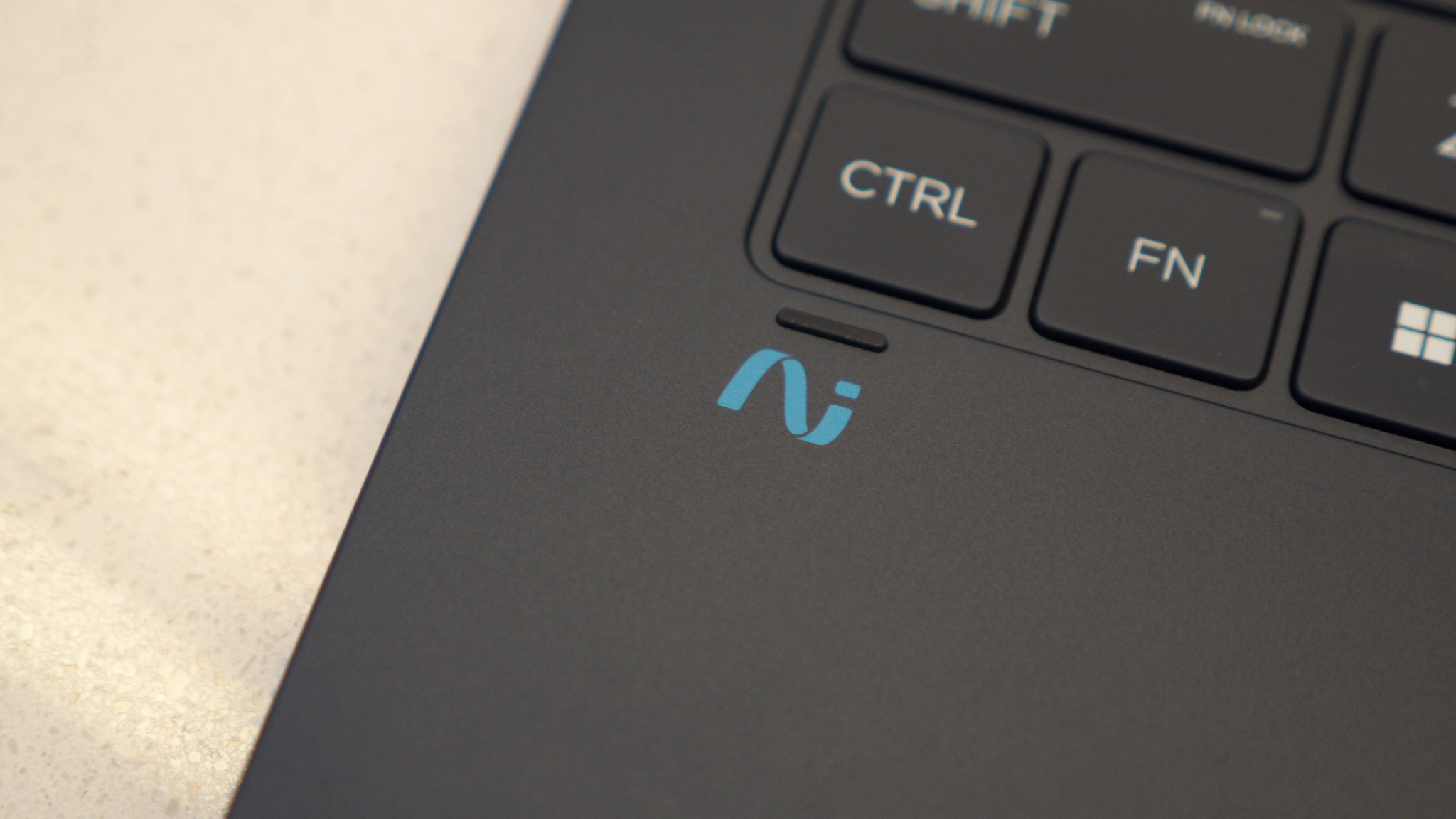
Sometimes we get so used to things just working as they are – even when they could clearly work much better and cause less friction. This was a key point HP was keen to address with its new NV6000 printer series, which can work in tandem with an AI software to deliver a more optimised experience.
Sue Richards, Division President of HP's Home Print Business, discussed what's forthcoming from HP in 2025, when HP's new AI app will launch and take over from the current HP Smart one. This will make it possible to, for example, print summaries rather than extensive documents, or select from a series of AI-produced layouts that are optimised based on the context of what you're printing.
That's AI going that one step further than just following a linear series of code: by identifying blocks of data, and how those are arranged for optimal output, then continuing to learn over time based on users' responses. That's where personalisation begins to come in, because AI can learn the consensus of a user base, or prioritise a specific user's wants. And it'll only improve the more user feedback reinforces that what it's doing is a positive development.
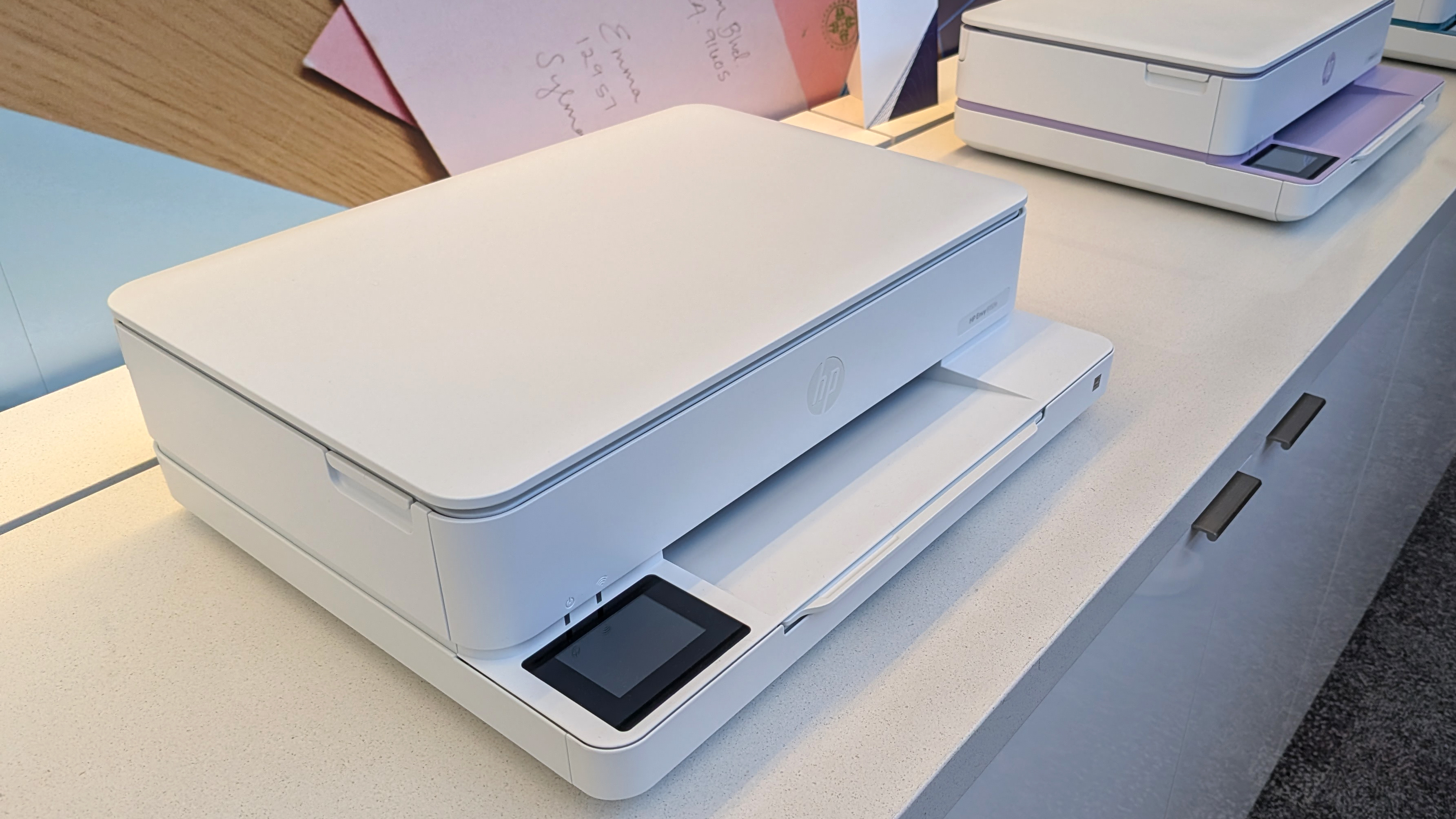
Chang concurs: "Going forward I do expect a lot more applications will be able to deliver personalised content. I think there two aspects of AI here. One is that it's going to know a lot more about me – because I interact with it many hours a day – and while now it can't [for example] write like me, over time it's going to get more personalised.
"Second is the idea of input modality. Even though laptops get upgraded every year, how we interact over almost 30 years fundamentally hasn't really changed. It's a keyboard and a mouse [or trackpad]. Now, with AI, we can do more with input, whether it's gesture or voice.
"One might say, 'but Sam, I've been having voice on my [Amazon] Alexa speaker for the last 10 years – that's not new!'. And you're right. But the ability to understand speech to text or natural language ... the ability to have context is what will really make it more effective. And because AI [can have] a better understanding of what's personal and apply the context will make it more impactful."
3. The next 'killer apps'
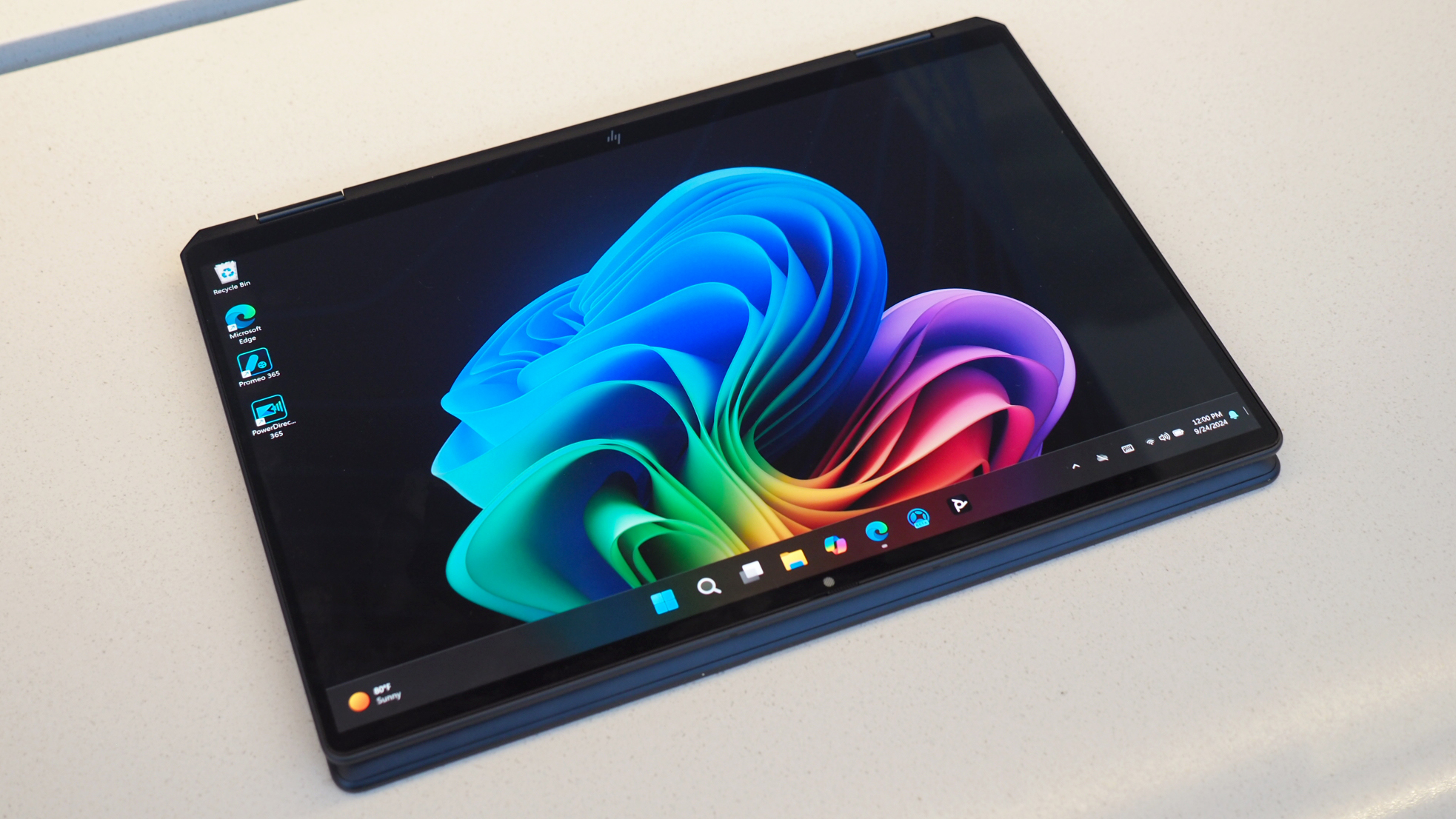
Deeper into the future there'll be even more to expect – even if we don't know precisely what that means just yet. That's where AI laptops can be a way of future-proofing for those who buy into AI PC products now, such as the OmniBook Ultra Flip. Yes, you'll get the better battery life promise and more efficiencies and automations in various apps. But it's the third-party apps that are yet to be dreamed up that Chang thinks will be the big step forward – to bring greater cohesion.
"We're still in the phase of discovering the potential for applications. But 'what's that next killer app?'. There was no Uber when the iPhone came out. Even if I had the idea [back then], it'd be really hard to describe: 'You're going to step into a strangers car and go somewhere'. 'I don't get it'. Today they call that a location-based service, right? And I think we'll see an 'AI-based service' evolution too.
"But what I get even more excited about is that if AI knows the context of all those [yet-to-be] applications, it has the ability to be actionable. When I do a vacation plan, for example, AI should know enough information from the tickets to put it on my calendar, but know enough like 'oh, Sam has garbage collection so maybe I should send him a reminder to go pull out the garbage before [going away]'.
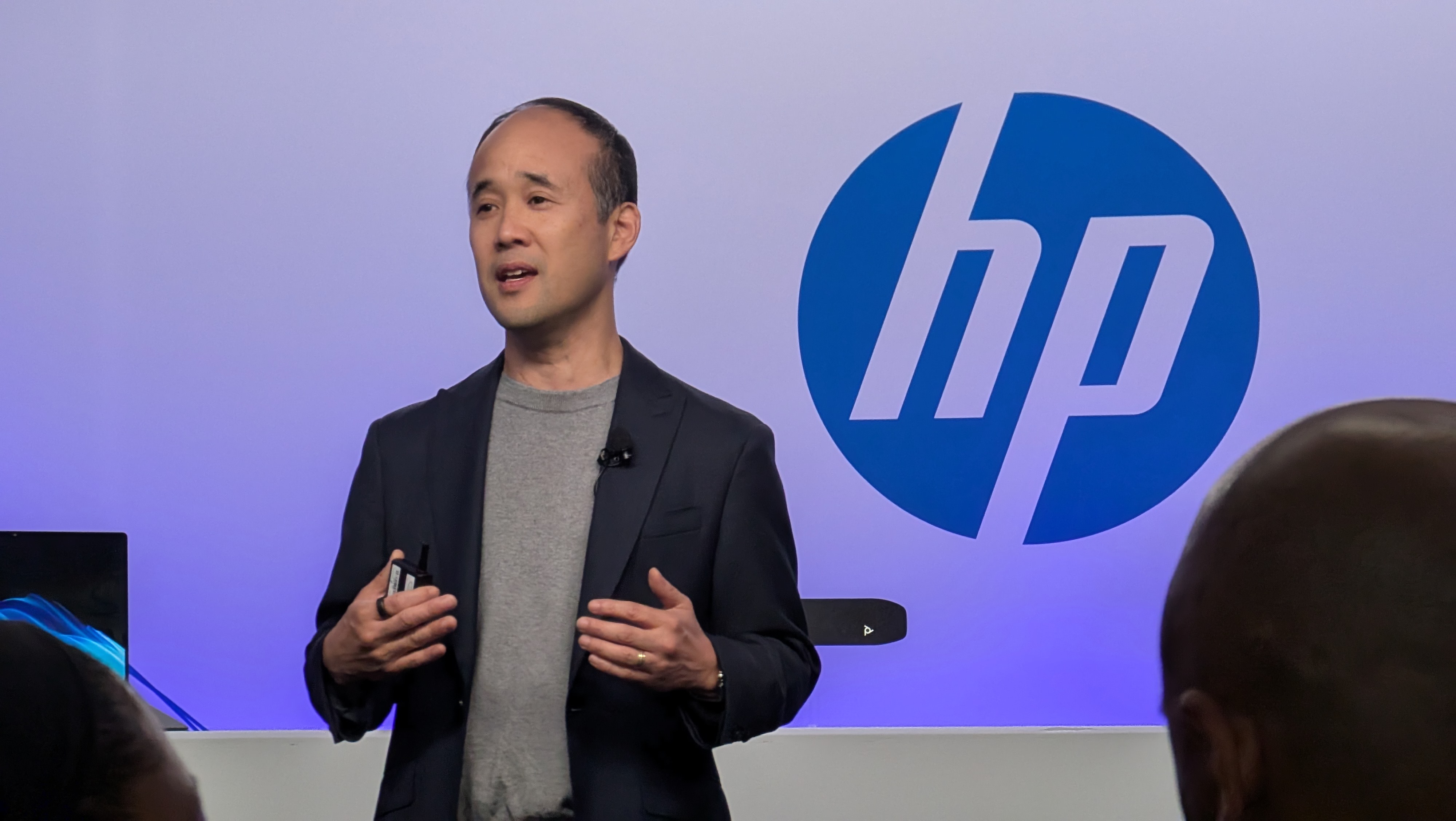
"The combination of personalisation and those new [forthcoming] killer services with AI putting it all together is the future."
What I take from that, however, is that AI's future success won't be the doing of any one company. HP's launch of the OmniBook Ultra Flip is an important step – one that its competitors are also pursuing, from Microsoft's CoPilot+ PCs, to Lenovo, Asus, Acer and many more – but hardware is one part of a much more complex puzzle.
Indeed, we might not even call it 'AI' in the near future – it'll simply be technology that can do incredible joined-up-thinking and leverage third-party apps for a better user experience. And I think laying the foundations now is what will give everyone more time and productivity back in the future.

Mike is T3's Tech Editor. He's been writing about consumer technology for 15 years and his beat covers phones – of which he's seen hundreds of handsets over the years – laptops, gaming, TV & audio, and more. There's little consumer tech he's not had a hand at trying, and with extensive commissioning and editing experience, he knows the industry inside out. As the former Reviews Editor at Pocket-lint for 10 years where he furthered his knowledge and expertise, whilst writing about literally thousands of products, he's also provided work for publications such as Wired, The Guardian, Metro, and more.
-
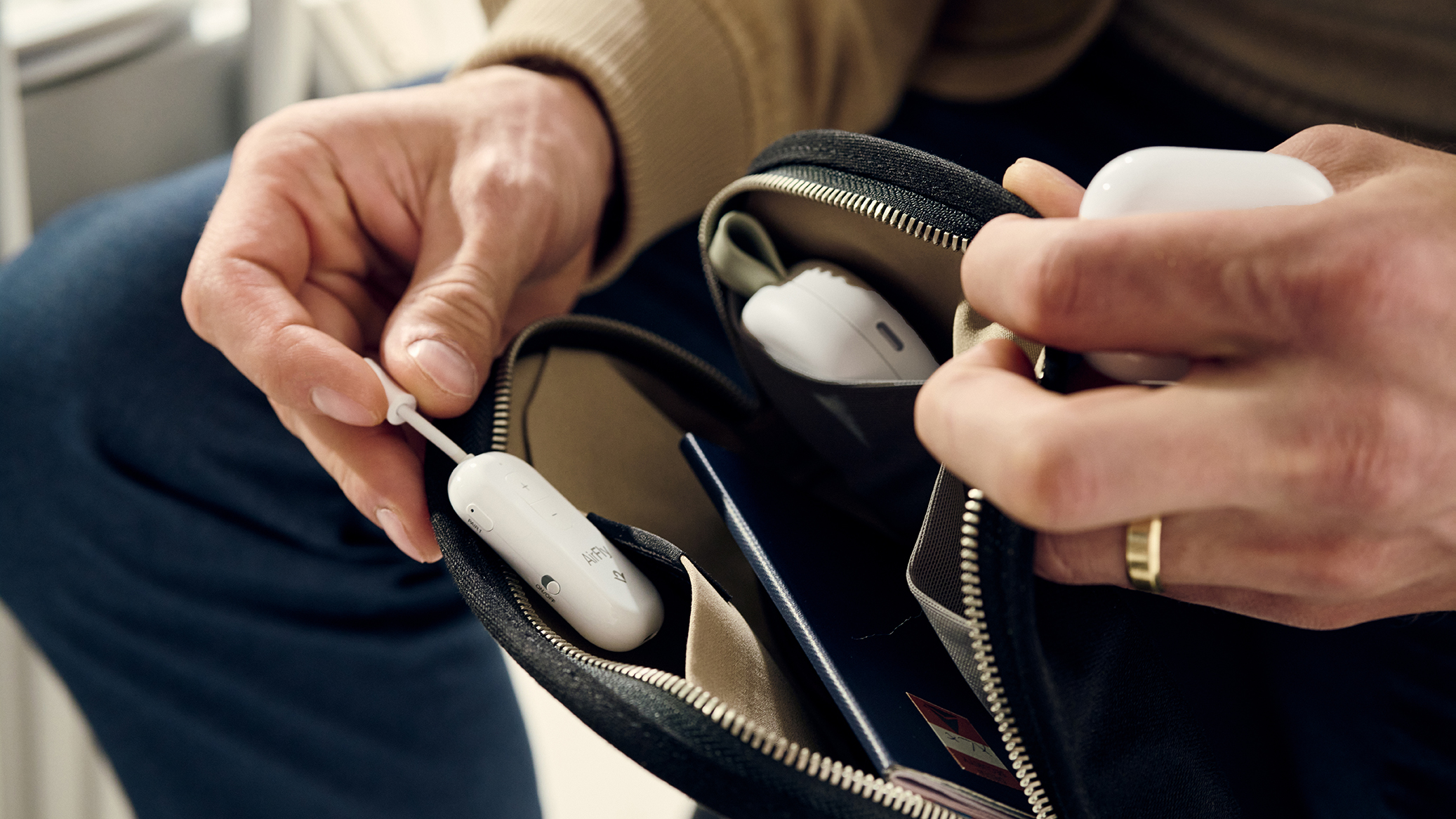 The 7 luxury travel items I won't leave home without – and why you shouldn't either
The 7 luxury travel items I won't leave home without – and why you shouldn't eitherI've flown for many hundreds of hours – and know these luxury travel items will improve your journey
By Mike Lowe
-
 Coleman takes on YETI with lighter, tougher and cheaper Pro Cooler range
Coleman takes on YETI with lighter, tougher and cheaper Pro Cooler rangeMove over, YETI – there’s a new cooler in town, and it's not here to play nice
By Matt Kollat